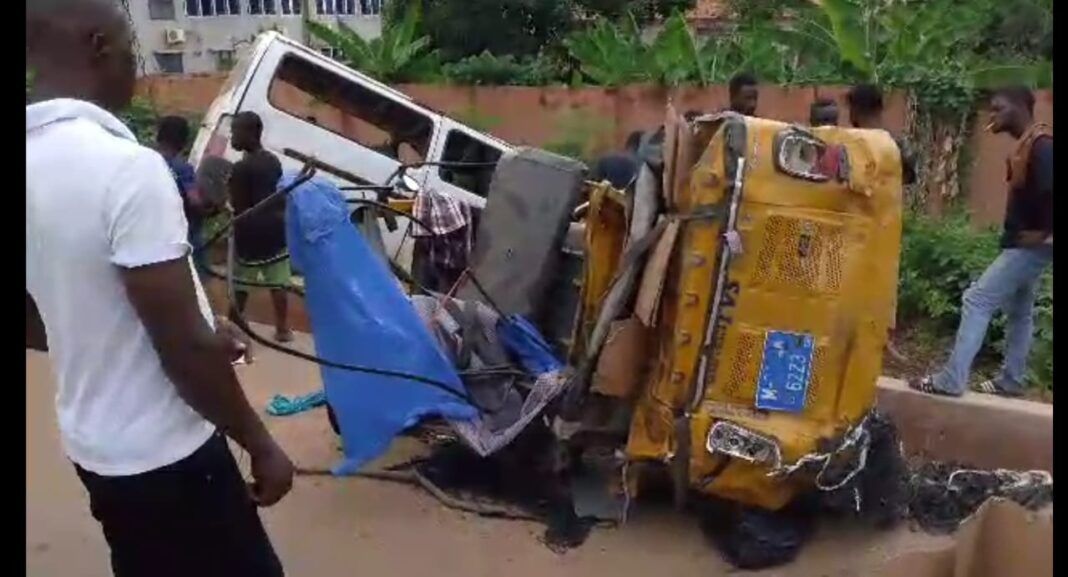It is pitiful when lives must be lost in order to maintain the safety of our roads, despite repeated pleas from drivers and commuters.
Three years after the Ahodwo-Trede Road was upgraded, the road has turned into a necessary evil for users.
Indeed, the road construction has been a major relief to residents, and eased traffic congestion on a sector of the Kumasi-Obuasi highway.
However, there have been avoidable accidents and fatalities on the road.
Recorded accidents
Sokoban is a major industrial enclave on the stretch, and the road links to several communities in the region.
Sections of the main road have turned death traps, recording major and minor accidents daily.
In April 2024, about five people were injured in a gory accident on the Ahodwo-Sokoban stretch, involving two vehicles and a tricycle popularly known as ‘Pragyia’.
In March 2024, two people were reported dead with five others severely injured after a tragic accident involving a mini commercial ‘trotro’ bus ramming into another bus.
A year earlier in April 2023, a trailer ran over three saloon cars at Sokoban, killing one person.
In October 2023, a saloon car ran over bystanders, killing two people at Sokoban Krofrom.
In February 2023, a gas tanker driver and his conductor were injured after their truck fell on its side at a sharp curve and caught fire at Sokoban Ampayoo.

Dangerous driving
The road has been without safety cautions: there are no traffic lights, no road markings, including zebra crossing, and no reflectors on the medians.
Pedestrian knockdowns, collisions at intersections and vehicular turnovers are rampant.
Reckless driving, excessive speeding and wrongful parking also contribute to crashes on the road.
Night driving is most dangerous as there are no lights to aid vision.
There is an outcry by residents and motorists over the neglect, leading to loss of lives and injuries to accidents.

Neglected section
The stalled construction of the one-kilometer Sokoban-Ampayoo stretch, has been frustrating for commuting, causing harm to vehicles and exposing residents to health risks from dust pollution.
Motorists spend 30-45mins to ply due to the deplorable state.
Few metres away is a life-threatening pothole at the corner of a curve left unattended for several months.
Road users and inhabitants of Sokoban have agitated over the deteriorating state of the road, despite assurances from local authorities to get it fixed.
Installing Road Safety
Communities need good roads, but these roads should not be built to kill.
Road contractors need to prioritize safety installations when roads are constructed, and the supervising professionals and institutions must ensure the safety of road users and residents are not compromised in project execution.

The pillars of road safety include road safety management, safer vehicles, safer road users, post-crash response and safer driving environment.
Majority of road traffic deaths and serious injuries are preventable if the driving environment is made safe.
Failing to take the right actions in making the roads safe has broader implications in public health with socio-economic consequences as it affects the progress towards attaining the Sustainable Development Goals (SDGs).
